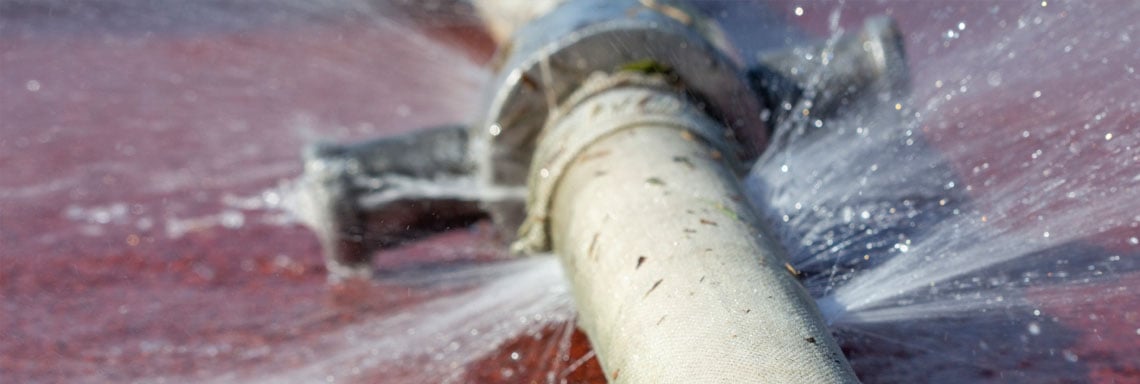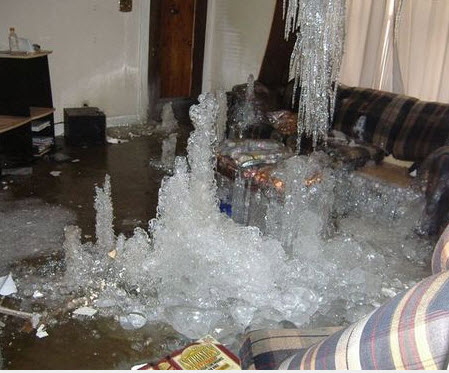A Complete Guide to Septic System Maintenance: Everything You Need to Know
A Complete Guide to Septic System Maintenance: Everything You Need to Know
Blog Article
The content down below pertaining to The Do’s And Don’ts After Water Damage is immensely entertaining. Don't bypass it.

What should you do if a water pipe ruptureds in your home, creating a mini-waterfall and also flooding an area of your house? The longer you wait, the much more extreme the water damage in your building. For these factors, you require to learn what to in case of a ruptured water pipe.
Shut Off the Key Waterline Valve
The first thing you need to do is shut the shut-off valve. Look for the neighborhood shut-off valve to turn-off water in one specific location only. If you don't recognize where the local shut-off valve to the component is, you need to turn-off the main waterline shutoff. This will cut off the water in your entire home. Usually, the primary valve is discovered outside the home alongside the water meter. If it's not there, you can likewise find it in the cellar at an eye-level or it could be in the 1st flooring on the ground. Commonly, home builders but the shut-off shutoff in the main ground degree restroom or appropriate beside it.
Call Water Damage Reconstruction Pros for Assistance
After closing the water resource, call the pros for help. This is not something you can conveniently DIY since they need to deal with the pipelines as well as resolve the damages to your property. Look for help from a respectable company providing 24/7 emergency services. With their specialist assistance, you can minimize worsening since water can seep with your things causing distorted walls, loose ceramic tiles, or damages structure. Don't take this issue gently and also seek career guidance for full assurance.
File the Damage For Insurance coverage
As you are waiting on the pros to get here, record the damages caused by the errant pipe. Take images and video clips of whatever. Do closeup shots of prized possessions. These points will function as proof for your homeowner's insurance coverage. Staying aggressive with this permits you to file a claim for coverage, which will help you as well as your family members come back on your feet.
Salvage Things That Can Be Saved
Once you're done taking pictures, peruse the items as well as take out one of the most vital ones from the pile. Dry them off and attempt to preserve as much as you can. Drag them away from moisture so they can begin to dry out.
Start the Drying Refine
While waiting for the pros, you can begin the drying procedure. The good news is, water from your waterlines are tidy so you do not need to fret about drain water. The flowing water might have disturbed the dirt and also particles in your floorboards and also carpetings. So be prepared with handwear covers as you utilize containers to dispose out the water. Blot out as much as you can with old towels. You can also turn on an electrical follower or open windows to advertise air flow. This will accelerate drying out and deter mold and mildew as well as mildew growth.
Professionals are the just one qualified to deal with the burs pipelines and subsequent damages. And bear in mind, pipes do not just suddenly ruptured. You will usually see red flags like gurgling paint, strange sounds in the plumbing, moldy smell, caving ceiling, peeling wallpaper, or water spots. Pay attention to these points, so you can nip any concerns in the bud.
What should you do if a water pipe ruptureds in your house, producing a mini-waterfall and flooding a location of your home? For these factors, you need to learn what to in instance of a burst water pipeline. After shutting the water source, call the pros for aid. With their expert assistance, you can mitigate exacerbation because water can permeate with your things resulting in deformed baseboards, loosened tiles, or damages framework. Fortunately, water from your waterlines are tidy so you do not have to worry regarding sewage system water.
BROKEN WATER PIPES: COST TO REPLACE & WAYS TO FIX A PIPE
CAUSES OF A BROKEN WATER PIPE
A water pipe can break for several reasons depending on the environment you live in, type of pipe, and circumstances.
The most common cause of broken pipes is freezing. If you live in a colder climate, this could happen. When water freezes it increases in volume by 9% and the pressure in the pipes can go from 40 psi to 40,000 psi. Clearly, this could be detrimental to the pipes. Water freezing causes quick expansion, which puts stress on the pipes and could lead them to crack or weaken. When water thaws, it will leak out the cracks. Other changes in water pressure can also cause breakage. Another common cause of broken water pipes is age.
Depending on the material, water pipes can last anywhere from 70-100 years. But the older they get, the more susceptible they are to weakening and corroding. Older pipes coming into contact with another material could speed up the corrosion process as well. PVC pipes can become brittle with age, while copper is prone to corrosion and stress over time. Something that could also potentially break water pipes is when they move. They may move from construction or the house settling. Moving can stress the fixed pipe which may lead to a leak or burst pipe.
HOW MUCH WATER COULD LEAK INTO YOUR HOUSE FROM A BROKEN PIPE?
The amount of water that leaks depend on how big the break in a pipe is. If it is just a minor crack, water will slowly leak out. This isn’t as serious as a full broken pipe, but it can still cause significant damage to your home. Burst pipes can leak up to 10 gallons of water per minute. The amount of water leaked also depends on what appliance is involved. The water line to your refrigerator can leak ½ to 1 gallon per minute depending on water pressure. One toilet supply line may leak 2-3 gallons a minute and a washing machine hose will leak up to 10-12 gallons per minute.
TURN THE WATER OFF
Doing this first is imperative; everything else can wait. You need to deactivate the water supply to stop the flow of water and prevent more water from leaking into your home. Shutting off the water could potentially save you thousands in water damage repairs. Locating the water shutoff valve depends on the climate you live in. For colder climates, the valves are usually inside, such as in the basement. For houses in milder weather, the shutoff valves will probably be outside—either attached to an exterior wall or in an underground box with a removable lid.
OPEN A FAUCET
The next thing to do is to open a faucet or turn on a sink. This will relieve any remaining water pressure in the pipes and ensure a full-shut down.
GET RID OF THE WATER
The quicker you get rid of the water, the less water damage and mold there could be. Use a mop and a shop vacuum to help get clean up the water. Use towels to dry everything the best you can.
CUT AND REMOVE THE DAMAGED PIPE
Once you have shut off the water and drained the damaged water pipe, you can begin to fix the issue. Cut out the damaged section of the pipe with a pipe cutter, ensuring that you also cut one inch extra on each side of the damage. Once you get rid of the broken part of the pipe, you may begin repairs.
https://www.wmhendersoninc.com/blog/broken-water-pipes-cost-to-replace-ways-to-fix-a-pipe/

I have been very enthusiastic about Water Damage: Tips On What To Do When Your House Is Flooded and I'm hoping you appreciated the new page. Don't hesitate to take the opportunity to distribute this blog entry if you enjoyed reading it. I thank you for reading our article about What To Do And What Not To Do When Dealing With Water Damage.
Report this page